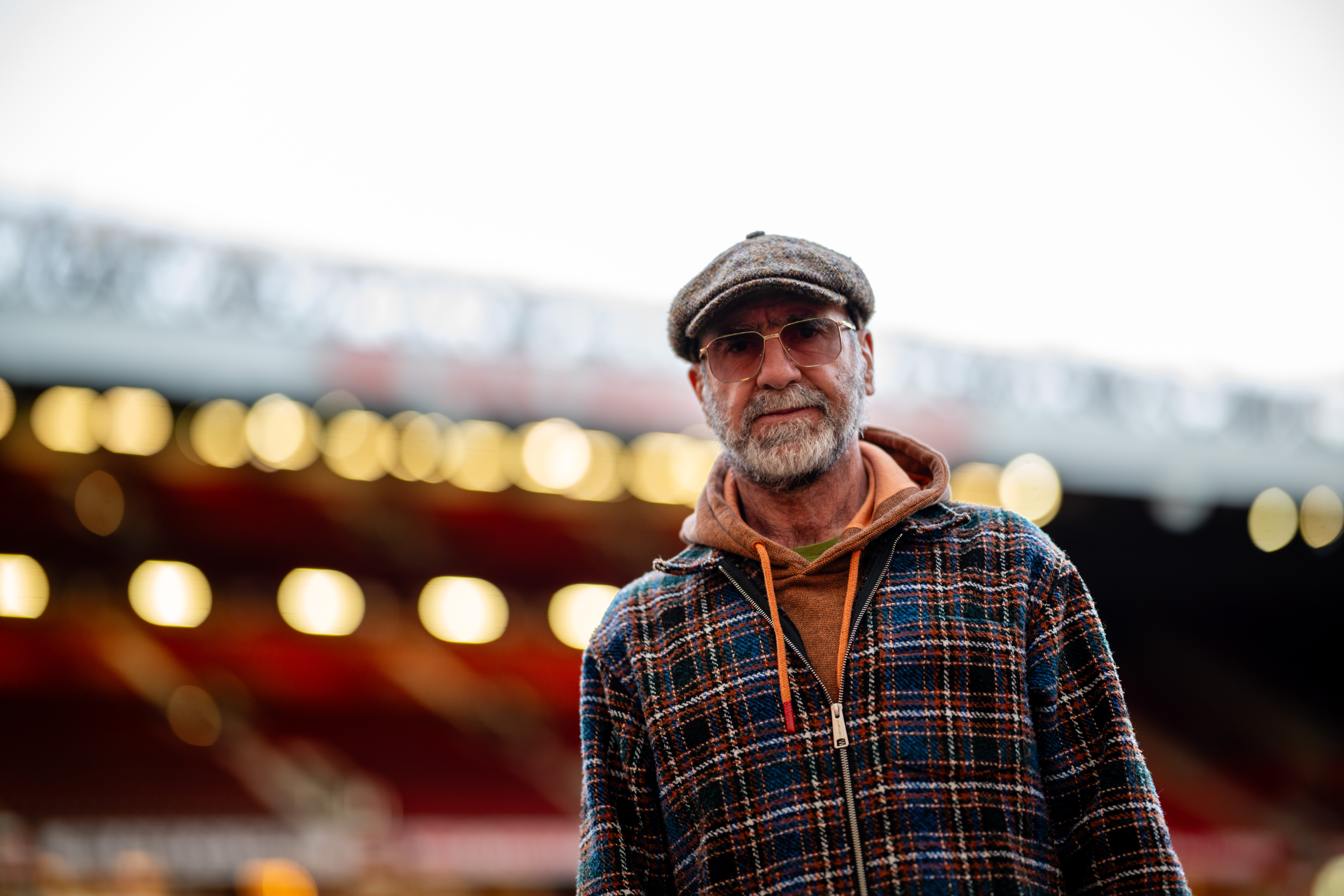Diego Maradona, the movie: What the documentary on his time at Napoli teaches us about the life of one of football's greats
Diego Maradona's tale is one of talent, adulation, drugs and the mob – El Diego's incredible time at Napoli is a story of how a legend can grow, and how it affects the person at the centre
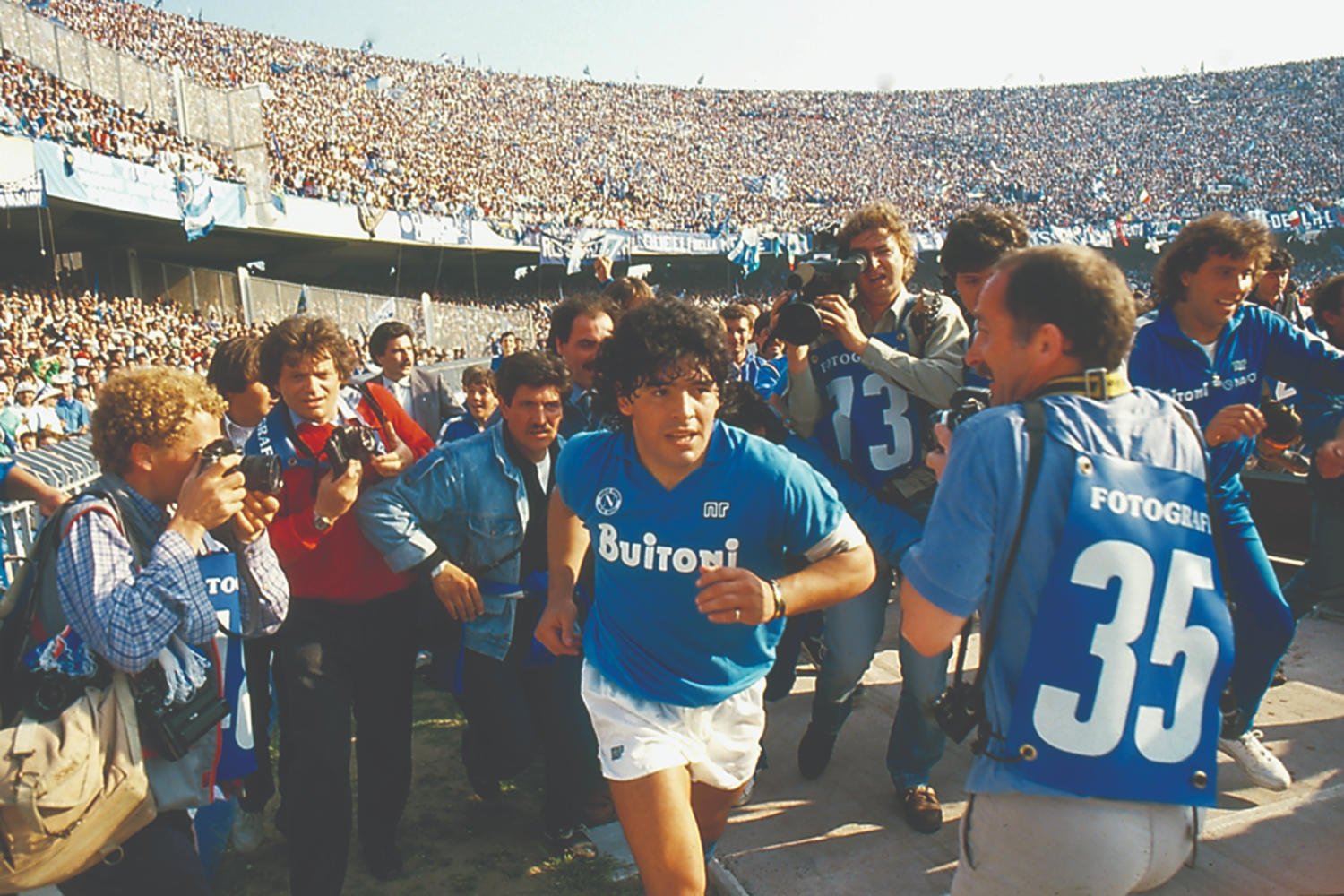
Revered and reviled in varying measures, Diego Maradona has passed away at the age of 60 after a heart attack.
Now, like the subjects of Oscar-winning director Asif Kapadia’s two previous films, Ayrton Senna and Amy Winehouse – victims of a fast and slow car crash respectively – you watch this movie as an elegy.
Senna set the bar for what a sports documentary could be, forgoing the usual procession of talking heads in favour of eye-opening archive footage that cut to the heart of the sport and fragile humans obsessed with it. Whether you know or care about Formula One, it is a riveting watch that lingers long after the credits roll.
Diego Maradona certainly follows that template, and is a mesmerising two hours that delves into the psyche of the squat Argentine cheat and leaves the viewer with an unfamiliar sense of sympathy.
WATCH IT NOW Rent Diego Maradona for £3.49 or buy for £5.99
Where to begin with Maradona, or indeed, where to end? His story continued in earnest throughout his life. Instead of attempting a chronological hagiography of his amazing life, the film distils the essence of the man down to his turbulent time at Napoli, starting with his 1984 move from Barcelona.
By today’s standards, that seems an unorthodox transfer, the loose equivalent of a young Lionel Messi joining Newcastle. In the early-80s, however, the landscape of European football was very different.
Get FourFourTwo Newsletter
The best features, fun and footballing quizzes, straight to your inbox every week.
“I don’t think anyone else wanted to sign him,” says director Kapadia, somewhat surprisingly. “No one was willing to pay.
“Diego was considered the best young talent, but he had a lot of bad luck in Barcelona and it didn’t work. He had his ankle broken by Andoni Goikoetxea, he got ill with hepatitis, and he was partying.
“To be honest, there were issues where I think people looked down on Diego because he was from Latin America and they were Spanish and Catalan. So there were tensions there and he didn’t succeed. He didn’t win anything other than the Copa del Rey.
MORE ON MARADONA
• FourFourTwo's 100 Greatest Footballers EVER: No.1, Diego Maradona
• Diego Maradona: the football world reacts to the death of an icon
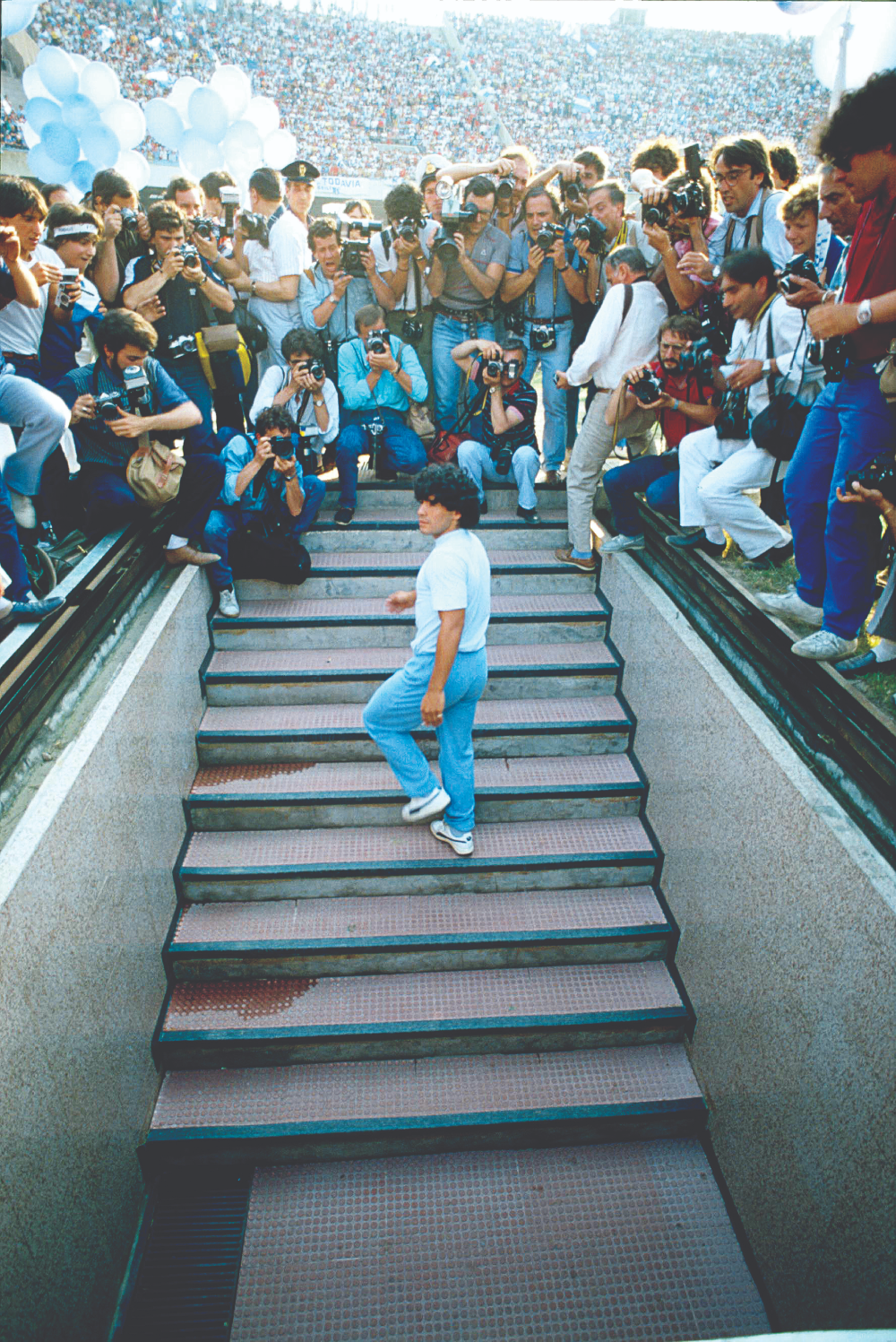
“At that point, Barcelona were not the Barcelona they are now. At that point they had never won the European Cup, and they hadn’t lifted the league title for a decade. Athletic Bilbao and Real Madrid were strong, but Barcelona were not the brilliant team we think they’ve always been when we look at them now.
“Naples was desperate for a hero. It was perfect timing – he was down, the city was down. Then Diego comes along – what a story.”
“So they wanted to get rid, Diego wanted to leave, and Italy was where all the best footballers went at the time. That’s where all the money was. But we’re talking about a different universe with limits on foreign players per team. Juventus already had Michel Platini and Zbigniew Boniek, the Germans – Lothar Matthaus, Andreas Brehme and Jurgen Klinsmann – ended up at Inter and Milan signed the Dutch: Marco van Basten, Ruud Gullit and Frank Rijkaard. It was mad.
“So this southern side signs Diego and now there’s a link between Italy and Argentina. I think he just felt an affinity. He didn’t know much about Napoli when he accepted their offer, but when he got there he felt more comfortable, probably than he would have felt in the north.”
If the young Diego took to Naples, then it’s fair to say Naples took to him. In a remarkable opening sequence, he’s shown being introduced to a staggering 85,000 crowd packed into the Stadio San Paolo, simply to mark his arrival.
“Naples was desperate for a hero,” says Kapadia. “It was perfect timing – him being down, Naples being down, the team not being great and nearly getting relegated. Then Diego comes along – what a story.”
It’s a story largely told by extremely intimate footage, much of which was commissioned by the young forward’s agent. He’d originally had the idea of making a film about him as early as 1981, almost like a nascent YouTuber.
"The first cut of the film was five hours long. It took 45 minutes to get to Napoli, and after Napoli there was half an hour of the aftermath. It was too much."
That picture never transpired, but Kapadia was given free rein to find a story within that extraordinary treasure trove of recordings, sifting through some 500 hours of unseen shots.
“The first cut was five hours long,” he reveals. “It took 45 minutes to get to Napoli, and after Napoli there was half an hour of the aftermath. It’s too much. We had to make some tough calls and I had to research everything. Unless you understand what happened at Barcelona, Boca Juniors and Argentinos Juniors and understand who all the characters are, you can’t tell the story at Napoli.
“But then post-Napoli, you realise there’s a repeat pattern. Eventually, we ended up focusing on Napoli because he arrives there feeling quite low, and the city is low. Then he rises to the top, helps them win Serie A twice, wins the UEFA Cup and wins the 1986 World Cup with Argentina, but also the issues and the troubles begin there.”
Essentially a prisoner of his own fame, Maradona was unable to live anything approaching a normal life in Naples.
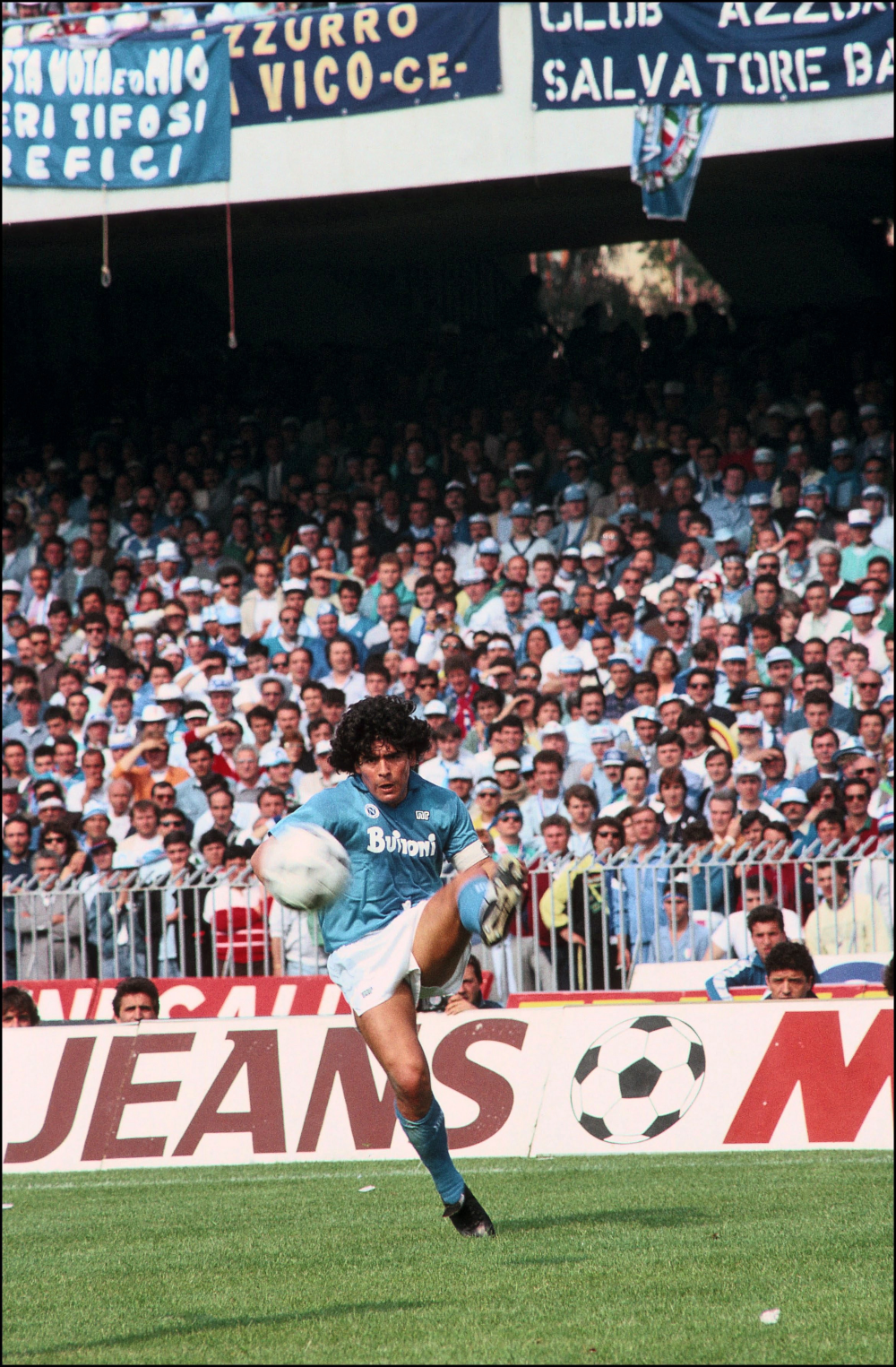
“It was quite intense,” continues Kapadia, with some understatement. “Latin countries can be intense anyway. In Naples, people are great but their passion and touchy-feelyness is on another level. People live on top of each other there. They’re all trying to show their love for him, but he’s also someone who doesn’t like being touched too much, so for Diego to deal with that kind of affection was difficult. Thousands of people would turn up everywhere he went.”
This deification took its toll, and Maradona developed an appetite for drugs and whores in a city where both commodities were controlled by the local mafia, who sunk their claws in the impressionable Argentine.In one startling confession in the film, he reveals his weekly regime of playing a game on Sunday, going out until Wednesday, then hitting the gym on Thursday, presumably with some kind of Withnailian approach to urine testing.
“He had a metabolism,” explains Kapadia. “He would look so incredibly out of shape, but then he’d train like crazy and sweat it off by the time matchday came along. His body shape just didn’t look like a footballer, but then he had this ability and this balance. He had a way of being, and that idea of talking to him honestly about how a typical week transpired was pretty amazing.”
Diego’s personal fitness coach, Fernando Signorini, is a key figure in the documentary, as well as an example of the Argentine’s advanced approach to his sport.
As the director reveals, “While he was in a football team he had his own regime. How many players would do that? How many players would even know to think like that? ‘I’m different to anyone else so I need to train at what I’m good at and what I’m weak at.’
“Signorini is very well read and very intelligent. He would literally say, ‘This is the way I’m going to train you, read this book.’ He would help him psychologically, talk to him about philosophy, and things like that. It took a long time to get Fernando to talk to us – he was working in Mexico. Senna opened a lot of doors for us because he loves Senna. Diego loved Senna, too. He loved the man and he loved the film.”
A throwback.Here is Diego Maradona bearing the famous Arrigo Sachi offside trap to score vs AC Milan for Napoli. Genius. pic.twitter.com/h7VhE6VYZSApril 7, 2020
For obvious reasons, Kapadia was unable to speak to Senna for that picture, so it was an opportunity he grasped with Maradona.
“I met Diego a few times and went to his house,” he says. “He was living in Dubai at the time, so I went there and interviewed him several times. I like to meet people when things are calm and quiet with no distractions, so didn’t want to meet him during the World Cup in Moscow. In Dubai there’s this giant man-made palm tree in the sea, and he lived in that palm tree. I went to his house, there was a cook, his assistant, his girlfriend and that was it – pretty quiet.
“The first time I met him he was watching Boca on television, and while I interviewed him he watched the game. But as we spoke he was very cool. He has a good memory of everything and he’s a good storyteller.”
We don't know if Diego watched the documentary, which can’t be accused of sugar-coating anything. This extends to the terrible treatment meted out to Napoli and their fans by the supporters of other teams, with Italian football employing a particularly repugnant approach to the north/south divide. Some of the words may well have been lost in translation, but the vile songs provide inadvertent moments of humour when presented as subtitles.
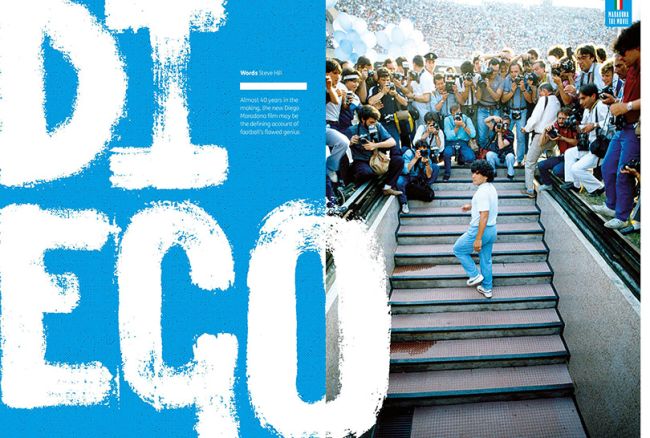
“People here laugh,” says Kapadia. “But obviously when you’re there it’s deeply offensive stuff. It was a conscious decision to show what he was up against, which makes the success all the more sweet. The main thing for Diego is he exists if he has something to fight against. He needs someone to dislike. They call it bronca. He’s got to have his anger. That motivates him, and if he’s angry he can be great. So to have a badge to fight for – to fight for the south, to fight for Naples against the north, against FIFA, corruption, whatever, all that stuff is classic Maradona.”
One motif that recurs throughout the film is the sense of dichotomy between Diego, the innocent scamp from the Buenos Aires slums, and Maradona, the global superstar.
“It came out of the interviews,” says Kapadia. “A lot of the time when I start films, I don’t know how I’m going to put it all together. But there were a few times when this concept started to arrive. People said who he is now isn’t who he was – there’s a different side to his personality.
“How do you interpret the contradictions and complexities of this guy? Senna had a clear rival, Alain Prost. He had so many rivals, but we ended up simplifying it to that. With Amy there were other issues to do with fame and success. Diego may have had rivals, but it wasn’t as simple as that. With him it was much more internal.
“In a way, it’s a bit like what rock stars or actors do. When they become famous they have a persona, and there’s another person they’re trying to protect.
“Having no education, Diego came up with that concept himself to say this is who I am: without Maradona I’d have never made it out of the slums, but by becoming Maradona you create chaos.”
Diego Maradona is available to rent and buy on Amazon
BLACK FRIDAY FourFourTwo magazine subscriptions now half-price
In over 20 years at the keyboard, Steve Hill has mainly written about football, video games, films, television and music. Widely published, those words have appeared in such publications as Maxim, Esquire, loaded, FourFourTwo, Hotdog, PokerPlayer, PC Zone, The Independent and The Mail On Sunday. Steve has been nominated for the William Hill Sports Book Of The Year twice.

